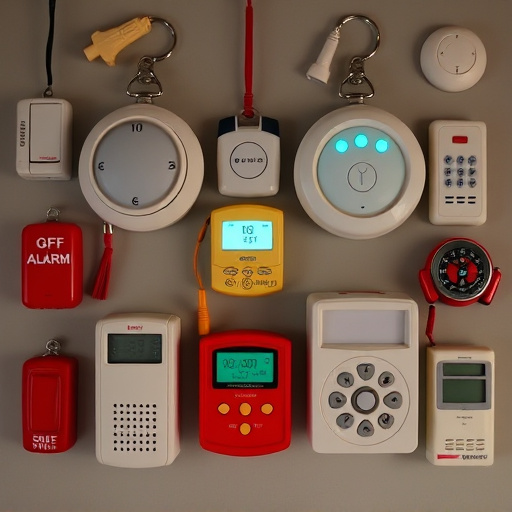Emergency phone alerts with location sharing, powered by smartphone technology, offer real-time assistance during critical situations. Compared to traditional alarms, these integrated systems provide faster response times and peace of mind for individuals and communities. In terms of personal safety, rechargeable vs battery personal alarms differ in maintenance and sustainability, but both offer crucial protection during emergencies, with battery alarms ideal for quick response needs. Integrating GPS technology into personal alarms enhances individual safety and community resilience, especially in urban areas with complex layouts.
In today’s fast-paced world, staying safe is paramount. Emergency phone alerts with location sharing have emerged as a modern safety net, empowering individuals during critical situations. This article delves into two primary types of personal alarms: rechargeable and battery-powered. We explore their respective advantages, focusing on sustainability versus convenience. By examining location sharing features, we highlight how these innovations enhance emergency response efficiency, providing valuable insights for consumers considering their personal safety options.
- Understanding Emergency Phone Alerts: The Modern Safety Net
- Rechargeable Personal Alarms: A Sustainable Approach to Safety
- Battery-Powered Alarms: Convenience Meets Reliability
- Location Sharing: Enhancing Emergency Response Efficiency
Understanding Emergency Phone Alerts: The Modern Safety Net
In today’s digital era, emergency phone alerts with location sharing have emerged as a vital safety net for individuals and communities alike. These advanced features go beyond traditional alarms, offering real-time assistance during critical situations. Unlike rechargeable or battery-powered personal alarms that require frequent maintenance, these integrated systems harness the power of your smartphone to send instant notifications to emergency services, complete with your precise location data. This capability is particularly beneficial in scenarios where immediate action is crucial, such as accidents, natural disasters, or personal emergencies.
The convenience lies not only in the speed at which help can arrive but also in the peace of mind it provides. Knowing that your location can be swiftly shared with first responders gives you and your loved ones a safety margin, especially when faced with situations where communication might be compromised. This modern safety feature is a game-changer, ensuring that assistance arrives promptly and accurately, ultimately enhancing overall public safety.
Rechargeable Personal Alarms: A Sustainable Approach to Safety
In today’s digital era, emergency phone alerts with location sharing have become a game-changer in personal safety. However, when it comes to ensuring immediate assistance during emergencies, Rechargeable Vs Battery Personal Alarms offer distinct advantages. Rechargeable personal alarms provide a more sustainable and cost-effective solution compared to traditional battery-powered devices. By eliminating the need for frequent battery replacements or disposal, rechargeable alarms contribute to environmental sustainability.
Rechargeable personal alarms leverage modern technology to deliver powerful alerts with precise location sharing capabilities. These devices often come equipped with solar panels or portable charging options, ensuring they’re always ready to activate in case of an emergency. Unlike their battery counterparts, rechargeables offer continuous protection without the worry of drained batteries. This makes them ideal for outdoor activities, remote locations, or situations where reliable power sources may be limited.
Battery-Powered Alarms: Convenience Meets Reliability
In the realm of personal safety, battery-powered alarms offer a convenient and reliable solution for emergency situations. Unlike their rechargeable counterparts, these alarms are always ready to activate with a single press, ensuring immediate attention in case of distress. The convenience lies in not having to worry about charging or battery life, especially during unexpected emergencies where every second counts.
When comparing rechargeable vs. battery personal alarms, the choice often comes down to reliability and accessibility. While rechargeable alarms have their advantages, such as reduced environmental impact, they may fail when power sources are unavailable or during power outages. Battery-powered alarms, on the other hand, provide consistent protection, making them ideal for high-risk areas or situations where quick response is paramount.
Location Sharing: Enhancing Emergency Response Efficiency
In today’s digital era, emergency phone alerts with location sharing have become a game-changer in enhancing response efficiency during critical situations. This innovative feature allows individuals to instantly convey their precise location to emergency services via a simple push of a button. By integrating GPS technology into personal alarms, whether it’s a rechargeable vs battery personal alarm, responders can swiftly navigate to the scene, crucially saving time and potentially lives.
Location sharing goes beyond mere coordination; it provides a dynamic tapestry of information that enables first responders to assess the situation more accurately. This real-time data is especially vital in urban areas with labyrinthine street layouts, where even seasoned locals might struggle to find their way in haste. Therefore, equipping individuals with location-sharing capabilities not only empowers them but also strengthens the overall resilience of communities.
Emergency phone alerts with location sharing have become indispensable tools for personal safety, especially in unforeseen circumstances. By comparing rechargeable and battery-powered personal alarms, it’s clear that both offer unique advantages. Rechargeable alarms promote sustainability, while battery-powered options provide convenience and reliability. Location sharing enhances emergency response efficiency, ensuring help arrives faster. Ultimately, choosing the right alarm depends on individual preferences and needs, but adopting these modern safety measures can significantly improve one’s well-being in critical situations.
